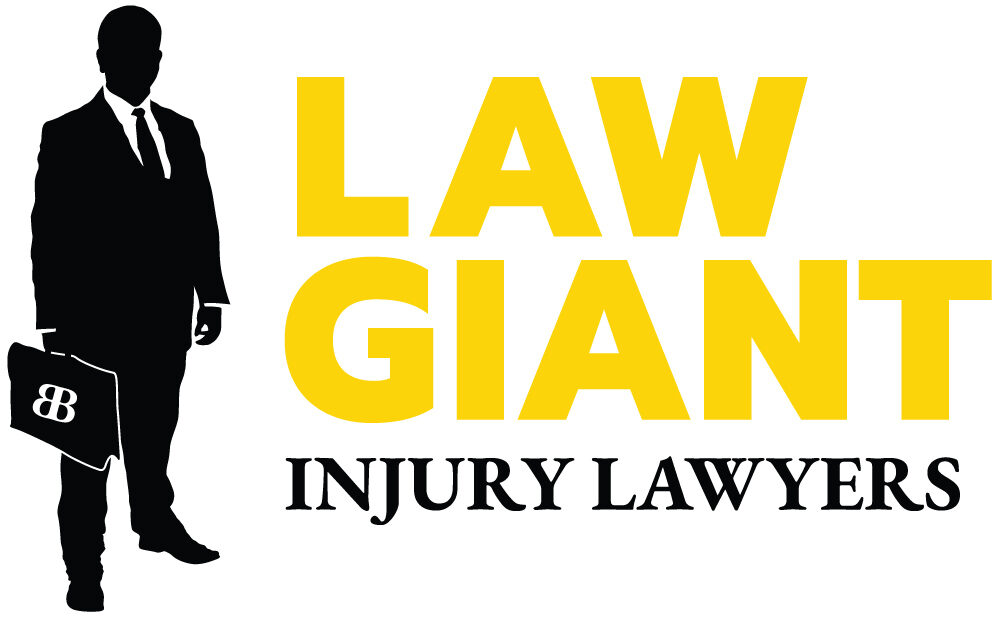
When you’re hurt in an accident in New Mexico, whether it’s a car crash, a slip on a wet floor, or a dog bite, the aftermath can be overwhelming. You have medical bills, you may be missing work, and the pain can be a lot to handle.
Insurance companies often rush to offer you money to settle the claim. But beware, these initial offers may not cover all your needs.
It’s appealing to want to settle quickly, collect money, and move on. That’s precisely what the insurance industry is counting on because the less they pay you, the more profit they make. Here, The Law Giant Injury Lawyers explore how to spot lowball insurance offers and what to do about it. Plus, an experienced personal injury lawyer can help fight for what you deserve.
How to Identify a Lowball Personal Injury Settlement
If you’ve been injured in an accident caused by negligence and you file a claim for damages, it will typically be resolved via an insurance settlement. This settlement is an agreement between you and the responsible party (or their insurance company) to resolve the matter without going to trial. This agreement usually involves paying money to compensate you for your injuries and losses.
Understanding what constitutes a fair settlement is crucial because it ensures you receive adequate compensation to cover all your expenses and damages related to the accident, including medical bills, lost wages, and pain and suffering.
Here are some red flags to watch for and steps to take if you suspect an offer is insufficient:
1. The Settlement Offer Comes Too Fast
Be cautious if an insurance company quickly reaches out with a settlement offer after your accident. This can be strategic on their part, aiming to resolve a claim before you fully grasp your injuries’ extent and future impact.
Imagine you’re involved in a car accident and initially feel fine except for some minor aches. Within a few days, the insurance company might contact you with an offer to settle. Taking this quick payout is tempting, especially if immediate expenses are piling up. However, what happens a week later when you start experiencing severe back pain and learn from a doctor that you need physical therapy and possibly surgery?
By accepting the early offer, you might have forfeited your right to claim adequate compensation that covers these new medical expenses, not to mention compensation for pain and suffering or lost wages during your recovery.
2. The Amount Won’t Cover Expenses
When evaluating an injury settlement offer, it should encompass both immediate and long-term expenses. Severe injuries may require extensive treatment beyond the initial hospital visits, including rehab, follow-up surgeries, and ongoing therapy or medication. Also, if your mobility is affected, you might need to modify your home or arrange transportation, which should be factored into the settlement.
For instance, if you sustain a knee injury from a slip-and-fall at a grocery store and the initial settlement covers only the emergency room visit and some physical therapy, this is insufficient if you later require knee replacement surgery followed by extensive rehab.
Additionally, suppose your job requires physical activity, and you cannot work during your recovery. In that case, the settlement should compensate for lost wages and any impact on your earning capacity, ensuring you can recover from the immediate fallout and long-term repercussions of your injury.
3. The Offer Ignores Non-Economic Losses
An insurance settlement offer after an accident shouldn’t just cover the economic damages, like medical bills and lost wages. There are also subjective losses connected to serious injuries; you have every right to recover them.
These intangible costs don’t have a direct dollar amount and may require help to estimate accurately, but they significantly affect your quality of life. Non-economic damages include:
- Pain and Suffering: Compensation for the physical pain and discomfort caused by your injuries.
- Emotional Distress: Covers the psychological impact of the accident, such as anxiety, depression, and trauma.
- Loss of Enjoyment: Compensation for the inability to engage in hobbies and activities you enjoyed before the accident.
- Loss of Consortium: If your injuries affect your relationship with your spouse or family, this compensates for the loss of companionship and support.
Consider that you suffered multiple fractures and a concussion in a commercial truck crash. The physical recovery itself is daunting and painful, but the accident also leaves you with ongoing anxiety, nightmares, and a fear of driving. This is emotional distress. While your initial settlement offer might cover your medical bills and lost wages, it should also account for these life-changing factors.
4. There’s Pressure to Settle Now
Pressure to settle is a common tactic used by insurance companies to persuade victims to accept less compensation than they deserve. This pressure often comes in the form of persistent calls from insurance adjusters, who may insist that the settlement offer on the table is the best you’ll receive and hint at lengthy delays in payment if you don’t accept fast. This creates a sense of urgency, leveraging your immediate financial needs and the stress of your situation against you.
Such tactics exploit your vulnerabilities. In these times, it’s crucial to consult with a personal injury lawyer who can evaluate the offer objectively and help you secure the full compensation you need for your recovery.
5. The Offer Is Disproportionate to Your Losses
A fair insurance settlement should accurately reflect the gravity of the incident and its impact on your life. This is particularly true in cases of catastrophic injuries and wrongful death, where the compensation should address the immense emotional and financial consequences suffered by those involved.
Suppose your loved one was fatally injured due to another driver’s negligence, and the initial offer barely covers the medical expenses incurred before their passing. In that case, this should raise a red flag. In this situation, the offer should also consider the significant future financial losses and emotional trauma. If the amount proposed seems insignificant compared to these profound impacts, it’s a clear sign that the offer is insufficient.
Consulting a skilled attorney can help you understand the full scope of your claim and ensure that any settlement respects the depth of your loss.
What to Do If You Receive a Lowball Settlement Offer
Never underestimate the complexity of a personal injury claim. But by recognizing the signs of a lowball offer and with the proper legal support, you can significantly improve your chances of receiving a fair settlement after an injury.
Do Not Accept the Offer Immediately
Resist the urge to accept the first offer. Initial offers from insurance companies are often lower than what your claim is genuinely worth. Consulting with a knowledgeable personal injury lawyer can give you insight into assessing the offer’s fairness.
Get a Professional Evaluation
It’s crucial to understand the full scope of your damages before deciding. A personal injury attorney can perform a detailed evaluation of your claim, considering all relevant factors such as medical costs, pain and suffering, lost wages, and other impacts.
Gather & Organize Documentation
Collect all pertinent documentation related to your injury. This includes medical records, bills, proof of lost wages, and any other evidence that underscores the financial and emotional impact of the accident. Well-organized documentation is essential for substantiating your claim in settlement negotiations or court.
Counteroffer & Negotiate
With the aid of your attorney, you can prepare a counteroffer if the initial proposal is insufficient. Your lawyer will negotiate on your behalf, using the comprehensive documentation to support a claim for higher compensation.
Prepare for Court
If a satisfactory settlement cannot be reached through negotiation, be prepared to take your case to court. Filing a lawsuit might prompt the insurance company to offer a fairer settlement. Your attorney will guide you through every step of the legal process, ensuring your case is compellingly presented in court.
Recover What’s Full & Fair – Get The Law Giant
Dealing with a personal injury claim is complex, but you don’t have to navigate it alone or accept a settlement that doesn’t meet your needs. An experienced lawyer can make a difference in your fight for maximum compensation.
The Law Giant Injury Lawyers bring a formidable track record of success to cases like yours, having recovered over $1 Billion. Our New Mexico attorneys have a reputation for holding insurance companies accountable and ensuring they fulfill their obligations.
Contact us if you’re facing a tough battle with an insurance company or believe you received a lowball settlement offer. Let The Law Giant fight for everything you rightfully deserve. Call 505-900-0000 or contact us for a 100% free case evaluation.

